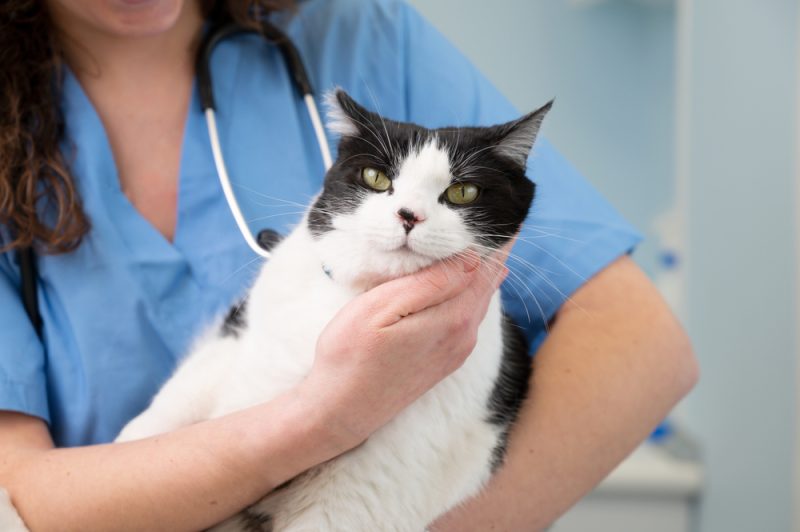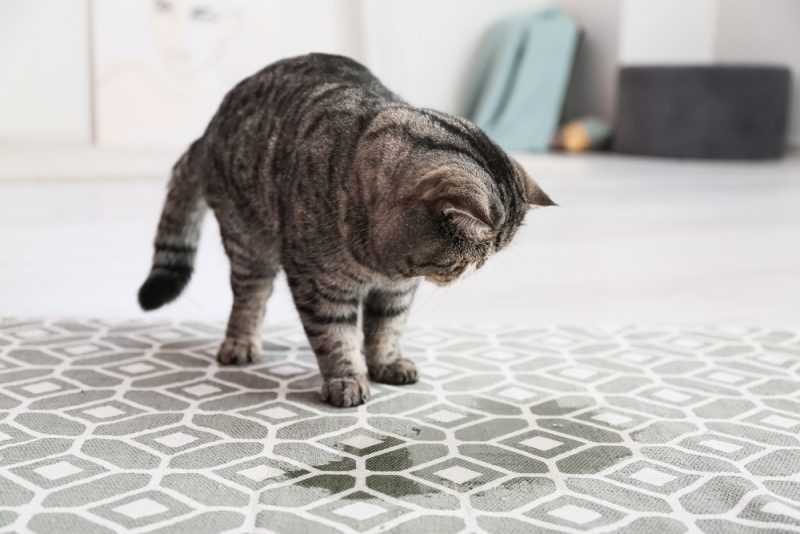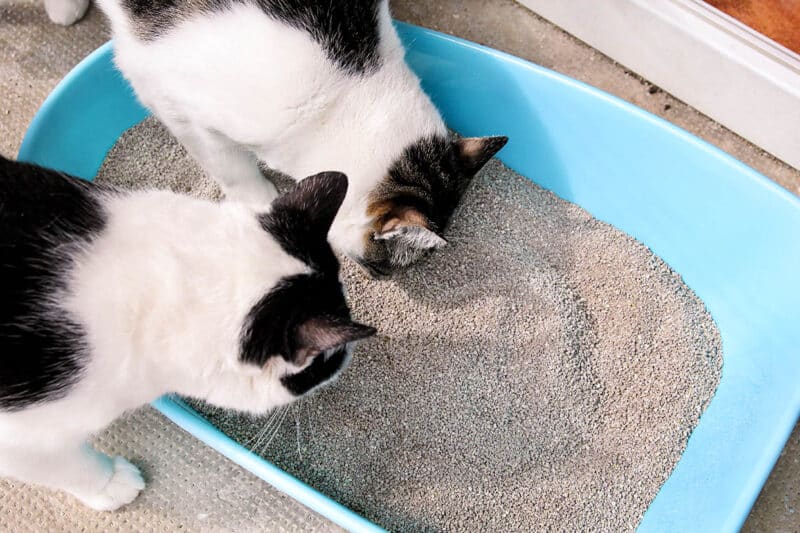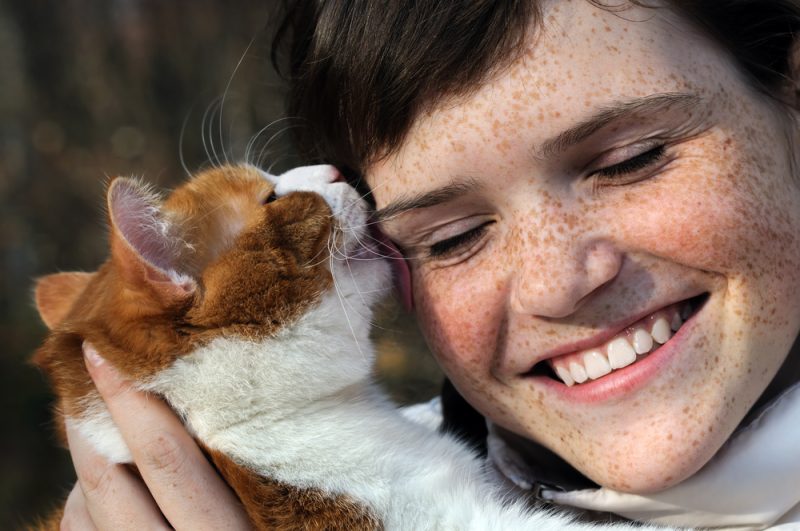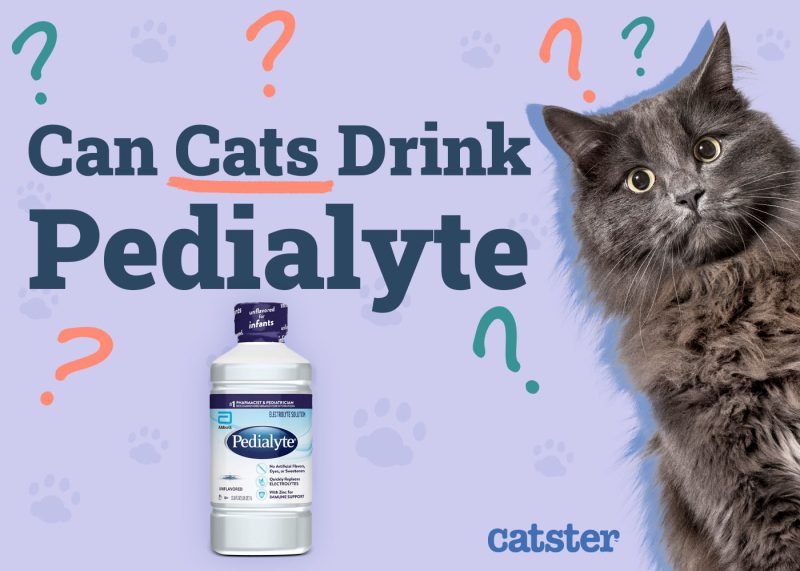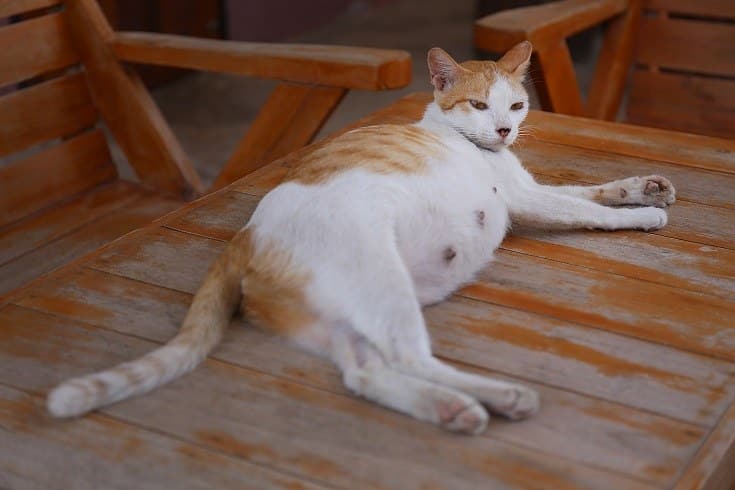Preventative flea and tick medications are highly effective at eliminating these pests, but some owners prefer “natural” home remedies to keep fleas and ticks away. Cornstarch is a fairly common and popular method, along with other powders, but cornstarch is not effective in killing fleas on cats.
Read on below to find out more.

What Is Cornstarch?
Cornstarch is a common ingredient made from the starchy portion of corn kernels, the endosperm. It’s used in cooking and baking to thicken gravies, sauces, marinades, and soups.
It’s also gained a reputation for being a multipurpose ingredient that can be used around the house for everything from deodorizing to wound care. Unfortunately, very little scientific research backs up any of the claims about cornstarch as a natural remedy, especially when it comes to flea treatment and prevention.

Can Cornstarch Kill Fleas?
No, there’s no evidence that cornstarch can kill fleas. It’s one of many purported home remedies for flea prevention, including diatomaceous earth and apple cider vinegar, but none of these options have proven effective at all, let alone as effective as vet-approved methods.
Though cornstarch is generally safe, it offers no benefits as a flea preventative for your cat—not as a topical remedy or as a treatment for your cat’s bedding, furniture, or in your household. And there’s no evidence, anecdotal or otherwise, to suggest that cornstarch is a remedy for ticks, which are another issue for domestic cats.
Do Cats Need Flea and Tick Prevention?
Flea and tick infestations are one of the most common issues for pets, including cats. Though some owners believe that indoor cats don’t need monthly flea and tick preventative medication, it is essential to your cat’s health.
These parasites are ectoparasites, which means they live on the outside of the host animal. Both fleas and ticks survive on blood from the host—your cat—and leave tiny bites and saliva behind. This saliva can trigger allergies, infection, dermatitis, itching, and in severe cases, anemia, abscesses, paralysis, or death.
- Lyme disease
- Bartonellosis
- Rocky Mountain spotted fever
- Anaplasmosis
- Babesiosis
- Tapeworms
To make matters worse, some of these diseases are zoonotic diseases, which means they can be transmitted from cats to humans.
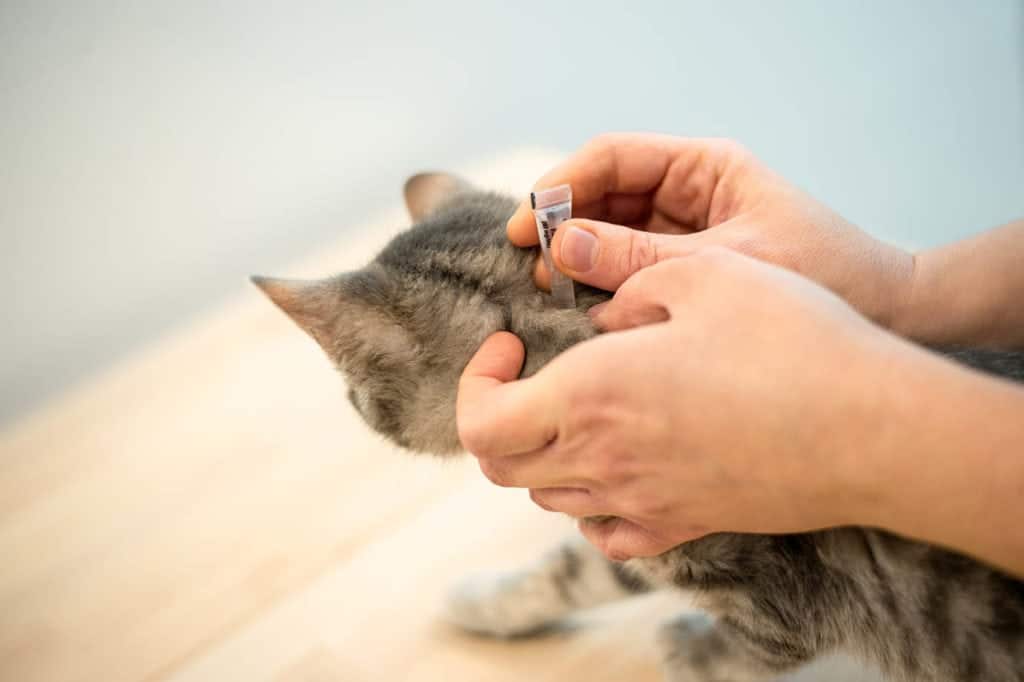

What Flea and Tick Preventatives Are Available for Cats?
Medications for flea and tick prevention have come a long way. You can get repellants, dips, baths, topical preventatives, and oral preventatives, all of which address specific species and different stages of the parasite life cycle.
Though preventatives are available for both cats and dogs, they’re not interchangeable. Some preventatives are only suitable for dogs and may be toxic to cats, so don’t share medication amongst your pets.
Some preventatives are available at pet stores or livestock supply stores, but these aren’t a good choice for your cat. It’s important to discuss parasite prevention with your vet to explore your options, consider any possible adverse reactions with different medications, and choose the appropriate product for your cat.
If you need to speak with a vet but can't get to one, head over to PangoVet. It's an online service where you can talk to a vet online and get the advice you need for your pet — all at an affordable price!


Conclusion
Cornstarch is one of many home remedies that provide a “natural” solution to flea and tick control. Unfortunately, it’s not effective on fleas or ticks, leaving your cat (and you) susceptible to health conditions that can be spread by these tiny pests.
Instead of taking a chance with natural alternatives, work with your vet to find a flea and tick preventative that’s appropriate for your cat and provides reliable pest protection.
See Also:
- Does Pine Sol Kill Fleas on Cats? Vet-Reviewed Effectiveness & Safety Explored
- 10 Natural Home Remedies for Cats With Fleas (Vet Approved)
Featured Image Credit: Michelle Lee Photography, Shutterstock




